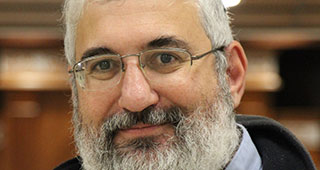Beit Midrash
- Sections
- Chemdat Yamim
- P'ninat Mishpat
Ruling: Even if Levi originally pledged a gift, he is not legally required to fulfill the pledge (Shulchan Aruch, Choshen Mishpat 204:8), and therefore Shimon cannot rely on it as a determinant that the payment was a gift.
The Shulchan Aruch (CM 75:7) rules that not only can one deny receiving a loan or a pikadon or say he returned it, but he can also say that the money he received was as a present or that the giver was mochel the need to return it. He needs only a simple oath (heset) to be exempt. However, the Shach (75:22) and others say that the latter two claims are weak ones, which one is believed about only if he has a migo (the ability to be believed with another claim). The Sha’ar Mishpat (ad loc.) disagrees with the Shach. The Shulchan Aruch (CM 58:2) says that if Reuven owed money to Yehuda with a document and Reuven was seen giving money to Yehuda in a context that is not clear, Yehuda can say that it was payment for another loan (without a contract) migo of the claim that it was a present. On the other hand, the Rama (ad loc.) rules like the Rishonim that in such a case, Yehuda would not be believed that the money transfer was either a present or for another loan. Acharonim says that, in this regard, the situation of there being a document affects matters.
In this case, Shimon does not have a migo, as regarding such a large sum of money, which is almost never given without involvement of banks (checks or bank transfers) it is not feasible to claim that he did not receive the money or that he returned it. Therefore, whether Shimon is believed that he received it as a present or not depends on the above opinions, and, in any case, he would have to make a shevu’at heset.
Beit din rejects Shimon’s proof that the money was a gift from the fact that there was no document. It is not unusual to trust a close relative with payment without a document.
Next week we will explore the possibility that the assumptions of whether one is likely to give a gift are different when the people involved are close relatives.

P'ninat Mishpat (803)
Various Rabbis
385 - Lawyer’s Rights to Full Fees from Reluctant Client – part V
386 - A Loan or a Gift? – part I
387 - A Loan or a Gift? – part II
Load More

P'ninat Mishpat: Late and Flawed Apartment
based on ruling 82174 of the Eretz Hemdah-Gazit Rabbinical Courts
Beit Din Eretz Hemda - Gazit | Kislev 5786

P'ninat Mishpat: Dividing Returns on Partially Cancelled Trip – part I
based on ruling 84070 of the Eretz Hemdah-Gazit Rabbinical Courts
Beit Din Eretz Hemda - Gazit | Tammuz 5785

P'ninat Mishpat: Unsuccessful Transfer of Yeshiva – part I
based on ruling 82138 of the Eretz Hemdah-Gazit Rabbinical Courts
Beit Din Eretz Hemda - Gazit | Adar 5784
























